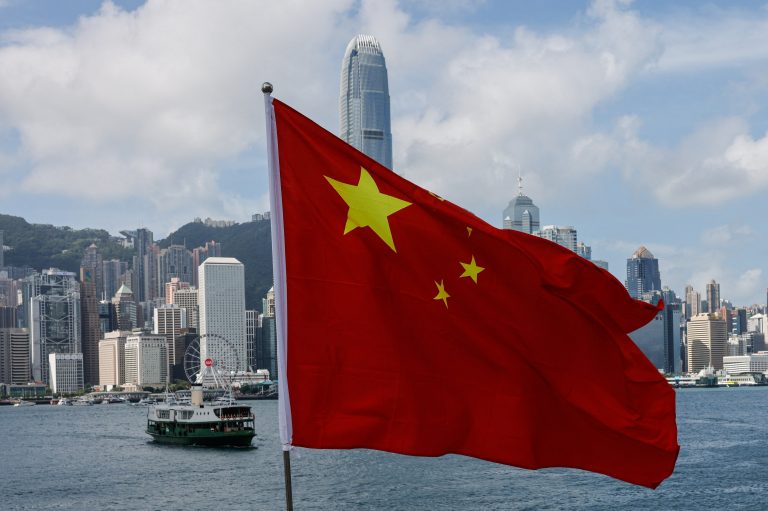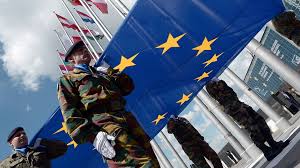
The Fate of Ukraine Under Trump: Balancing Peace and Sovereignty
As Donald Trump begins a historic second term as President of the United States, global attention pivots to the war in Ukraine—a conflict that has defined international relations since Russia’s invasion in February 2022. Trump’s pledges to prioritise peace in Ukraine and resolve the war swiftly could signify a new chapter in global diplomacy or a controversial compromise in the nation’s fight for sovereignty.
Trump’s Vision for Ukraine
Throughout his campaign, Trump projected himself as a master negotiator, vowing to end the war in Ukraine within 24 hours. This bold claim hinges on bringing both Ukrainian President Volodymyr Zelensky and Russian President Vladimir Putin to the negotiating table. While the timeline may seem unrealistic, it underscores Trump’s intent to make conflict resolution a central pillar of his administration’s foreign policy.
Trump’s approach marks a departure from his predecessor Joe Biden’s strategy, which centred on robust military and financial support for Ukraine. Instead, Trump’s administration is expected to embrace a transactional model, balancing U.S. interests with the urgency for peace. This could redefine the United States’ role in the conflict, prioritising diplomacy over military engagement.
The Push for Peace
Central to Trump’s strategy is the facilitation of peace talks between Kyiv and Moscow. His administration has signalled its intent to promote a ceasefire, potentially laying the groundwork for a broader settlement. Trump’s unique personal relationship with Putin may be leveraged to encourage Russian concessions.
Unlike the Biden administration’s focus on enabling Ukraine’s military victory, Trump’s diplomatic approach represents a shift towards negotiation. While this strategy aims to halt the bloodshed, it raises critical questions about the potential trade-offs required to achieve a lasting resolution.
Economic Sanctions: A Double-Edged Sword
Economic sanctions are likely to be Trump’s primary tool for pressuring Moscow. Reports suggest his administration is exploring targeted sanctions on Russian oil producers to incentivise negotiations. The strategy might include offering sanctions relief as a bargaining chip or imposing stricter penalties to compel Russia to engage in talks.
Scott Bessent, Trump’s nominee for Secretary of the Treasury, has described sanctions as the “key to unlocking peace in Ukraine”. However, the effectiveness of this approach will depend on its implementation. Missteps could alienate European allies, whose economies are intertwined with Russia, or undermine U.S. financial stability.
Risks of Concessions
Critics warn that Trump’s eagerness to broker a deal could lead to concessions favouring Russia. Scenarios under consideration include recognising Russia’s annexation of Crimea, accepting Moscow’s control over parts of eastern Ukraine, or delaying Ukraine’s NATO membership aspirations.
Such compromises would have far-reaching implications. Ukraine’s territorial integrity and long-term security could be jeopardised, while Russia may interpret these concessions as tacit approval for future aggression. For Ukraine, a peace agreement must not only end hostilities but also safeguard its sovereignty and independence.
Challenges for Ukraine
Ukrainian leadership faces a delicate balancing act as it navigates potential negotiations under Trump. President Zelensky has repeatedly emphasised the need for a just and sustainable peace, but Trump’s transactional style could exert new pressures.
If military aid is reduced or made conditional on progress in peace talks, Ukraine may find itself at a disadvantage. However, even limited U.S. support could strengthen Kyiv’s hand in securing terms that protect its national interests.
International Repercussions
Trump’s approach to Ukraine will reverberate beyond the U.S. and the conflict zone. European allies, pivotal in supporting Ukraine, will closely monitor whether Trump’s policies strain transatlantic relationships. A U.S. retreat from its leadership role could force NATO members to assume greater responsibility, testing the alliance’s cohesion.
Meanwhile, neutral powers like China and India may seize the opportunity to mediate or expand their influence. Beijing, which has maintained strategic ties with Moscow, could emerge as a key player in shaping the conflict’s resolution.
Russia’s Calculations
For Moscow, Trump’s presidency presents both promise and peril. Putin may view Trump’s administration as less ideologically committed to Ukraine’s defence, potentially creating space for negotiations. However, Trump’s unpredictable nature and his administration’s reliance on sanctions could heighten pressure on the Kremlin.
Russia must weigh the benefits of a negotiated settlement against the risks of prolonged conflict, especially as international support for Ukraine endures. Domestic economic challenges could also influence Putin’s willingness to compromise.
The Path Forward
The trajectory of Ukraine’s conflict under Trump’s presidency is fraught with uncertainty. While Trump’s emphasis on diplomacy offers hope for peace, its success hinges on the willingness of all parties to engage in good faith. Any resolution must strike a delicate balance: ending hostilities without sacrificing Ukraine’s sovereignty or emboldening future aggression.
For the U.S., the stakes extend beyond Ukraine. The credibility of American leadership, the stability of Europe, and the future of international norms hang in the balance. Coordination with allies, strategic use of economic tools, and steadfast commitment to democratic principles will be essential.
Conclusion
As Trump embarks on his second term, his handling of the Ukraine crisis will serve as a defining test of his foreign policy vision. While his administration’s approach may differ from its predecessors, the fundamental challenges remain unchanged: the pursuit of peace, the preservation of sovereignty, and the defence of democratic values.
The decisions made in the coming months will shape not only Ukraine’s future but also the global order. In navigating this complex and high-stakes conflict, the Trump administration has an opportunity to demonstrate the power of diplomacy and reaffirm its commitment to a world where peace and sovereignty coexist. The people of Ukraine—and the world—deserve nothing less.
Dr Brian O. Reuben is the Executive Chairman of The Sixteenth Council.



